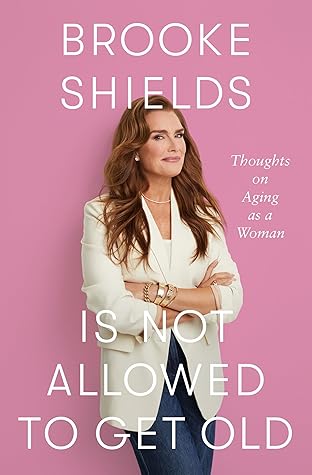More on this book
Community
Kindle Notes & Highlights
Read between
March 8 - March 14, 2025
And yet, as my forties progressed into my fifties, I began to notice that external perceptions didn’t seem to match up with my internal sense of self.
Why do we never see how unique and special we are? And why, when we finally take the pressure off or count our blessings or just enjoy who we are, is it practically too late?
“invisible woman syndrome.” The gist? When we are no longer deemed sexy or able to contribute to society by birthing and raising young children, our value diminishes. We are overlooked, ignored, or worse, not seen at all.
You survived, and it should be celebrated, and yet there’s a sense that you’re not as valuable or exceptional as you once were, and therefore you’re letting people down.
“But how can we fix it? How can we be a force for change?” And she reminded us that “every important movement started in a room like this—in a basement, or a living room.” When we step out from behind those closed doors and use our voices to talk about the misunderstandings, the underestimations, we’re already starting to change them. Maybe even fix them.
If there is something you want to change, now’s the time to change it. If there’s something you want to stop, now’s the time to stop it. If there’s something you want to do, now’s the time to do it.
Chita Rivera once said that bowing and taking in the applause is really about thanking the audience for giving you their time. This helps.
What confidence really is, according to psychologists, is a belief in your abilities and in your capacity to overcome challenges. It’s not about thinking you are better than anyone else, and, in fact, psychologists say that the people with the healthiest confidence are those who can admit when they don’t know something, because they have, yes, confidence in their ability to learn it.
“We know that estrogen does many wonderful things, but it can also drive some of the people-pleasing we see in teenage girls,” she says. “As women age, head into menopause, and produce less estrogen, it stands to reason that the desire to please declines. I’ve heard doctors say women become less nurturing as they hit menopause, but there’s a more positive way to see that: we care less what people think of us. We become less perfectionist. All that helps boost our confidence.”
if you’re a man who is forthright, you’re a leader. A woman, you’re a bitch. When men exude confidence, it’s not only expected but admired, whereas when we do, it’s met with shock and disdain. It was a reminder that while women are more confident as we mature, the world is just catching up. We age into a newfound belief in ourselves, but outside reactions tend to be something along the lines of “What got into her?!?” rather than “Good for her!”
You assume you’ve got forever. But there comes an age where dying is something you think about. Not constantly or daily, hopefully, and it’s not that you are worrying or wondering how you’re going to go. But there’s an awareness, that wasn’t always there, that time is finite.
And studies show that adults forty and over, on average, feel about 20 percent younger than we actually are.2 Has anyone ever asked you your age and you respond “thirty-five,” before remembering that, oh, you’re actually forty-five? Your mind hasn’t quite caught up with the rest of you. It’s called “subjective age,” and the younger your subjective age, the better off you are.
“We feel so identified with our cycle because we spend so many decades in it, avoiding it, managing it, whatever. And then it’s like, who are we without a cycle? And guess what? I really like who I am without a cycle! It turns out I was affected by my hormones in ways that I didn’t even really realize. And I feel just more steady. I feel more like myself. I feel more calm. I’m a pretty intense person, so I’m not as emotional in a way that bothers me. And I’m super creative. I’m digging into that creativity in a whole new way. It has been amazing.”
As much fun as shared history can be, sometimes it can also keep you stuck in the past. Friends from high school or college will always remember the person you were back then, and sometimes (oftentimes?) they assume you haven’t changed. Or maybe they haven’t changed in ways you wish they had. New friends come with no preconceived notions, and no baggage.
these days, I love solitude. I had to learn how to appreciate it, but now being alone doesn’t equate to loneliness.
once I had kids, finding time alone was a form of freedom.
the patriarchy is real. When men stop noticing you, it’s a pretty good indicator of how the world at large is going to treat you.
You know what they say, if it’s not one thing, it’s your mother.
It’s like chess—I may appear weak or subservient in the moment, but it’s all a tactic. Beating men at their own game is, I believe, one of the most feminist things you can do.
Because aging isn’t just “better than the alternative,” as the saying goes. It’s better than what came before.


